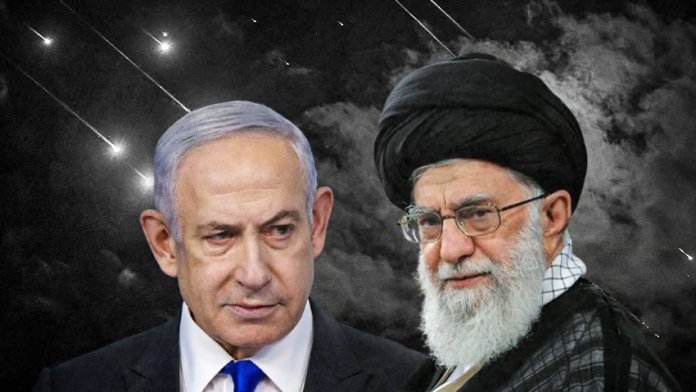Israeli Defence Minister Israel Katz issued a stark declaration on Thursday that Iran’s Supreme Leader Ayatollah Ali Khamenei “cannot continue to exist,” framing the elimination of Iran’s paramount authority as an operational necessity for Israel’s security.
A dictator like Khamenei, who heads a country like Iran and has made the destruction of Israel his mission, cannot continue to exist.
Prime Minister Benjamin Netanyahu amplified the confrontation earlier, vowing Israel would “strike every site and every target of the Ayatollah’s regime” while framing the conflict as an existential battle where “it’s either us or them.”
He also stated that “80 per cent” of Iranians “hate” the government headed by Khamenei, reiterating the pledge to continue targeting what Israel calls “regime facilities” as part of its military strategy.
The Arab world has opened up to us. And the threat we face now is Iran.
The unprecedented calls for the removal of a foreign head of state stands in sharp contrast to international responses. Neither the International Criminal Court nor Western governments issued warrants or imposed sanctions targeting Israeli leadership over recent explicit threats, highlighting what critics describe as a striking asymmetry in accountability.
US restraint and Putin’s mediation bid
The Israeli position notably diverges from the stance of its key ally the United States. President Donald Trump explicitly rejected an Israeli plan to assassinate Khamenei, telling Prime Minister Netanyahu such action was “not a good idea,” according to senior US officials.
Though Netanyahu sidestepped direct confirmation, stating, “I’m not going to get into that,” he downplayed targeting political leaders, emphasising Israel focuses on “nuclear and military” infrastructure instead.
Trump later publicly oscillated between praising Israeli operations and urging de-escalation, posting on Truth Social that “Iran and Israel should make a deal,” while warning Tehran against targeting US interests.
Meanwhile, Russian President Vladimir Putin positioned himself as a potential mediator, asserting that resolution must “both ensure Iran’s interests in peaceful nuclear activities and guarantee Israel’s interests in terms of the unconditional security of the Jewish state.”
He urged an immediate cessation of hostilities, claiming Iran’s underground nuclear facilities remained intact and society was consolidating behind its leadership despite Israeli strikes. Trump, however, swiftly dismissed Putin’s offer with sarcasm.
He actually offered to help mediate. I said, ‘Do me a favor, mediate your own. Let’s mediate Russia first, okay?’ I said, ‘Vladimir, let’s mediate Russia first, you can worry about this later.’
French President Emmanuel Macron reinforced this skepticism, stating, “I do not believe that Russia, which is now engaged in a high-intensity conflict and has decided not to respect the UN Charter for several years now, can be a mediator.”
However, the Kremlin’s approach contrasts markedly with the Netanyahu administration’s rhetoric. Despite the full-scale war in Ukraine, Putin has never publicly called for the elimination of President Volodymyr Zelensky, even as Moscow possesses significant capabilities for targeted operations.
Instead, Russia has repeatedly pursued negotiated settlements, framing Ukraine’s leadership as illegitimate following contested post-2024 elections and accusing Kyiv of sabotaging talks through actions like Operation Spiderweb and other military provocations.
Putin also said on Wednesday that he was ready to meet with Zelensky, but at the final stage of negotiations in order to “put an end” to the war.
The distinction underscores a broader divergence in how leaders frame adversaries during conflict, with Israeli leaders’ explicit call for Khamenei’s removal standing without parallel among contemporary geopolitical rivals. As strikes continue into a seventh day and Iran threatens closure of the Strait of Hormuz, the region is bracing for the possible failure of an early resolution to the Israel-Iran conflict.
